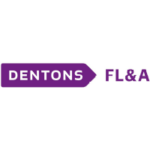-
What are the principal sources of laws and regulations relating to shareholder rights and activism? Do insider trading and/or market abuse rules apply to activist activity?
The following are the principal sources of laws and regulations that relate to shareholder rights and activism:
- The Companies Act, 2019 (Act 992) – This is the main statute defining shareholder rights, remedies, resolutions, the requisition of meetings, derivative actions, and protections against oppressive conduct.
- The Security Industry Act, 2016 (Act 929) – This law is complementary to the Companies Act in terms of shareholder activism. It regulates activist activity in listed companies and capital markets.
- Companies Regulations, 2023, L. I 2473 – The Companies Regulations provide detailed procedural and administrative provisions, especially in relation to requisitions, resolutions, transparency, and corporate filings, to support shareholder rights and activism.
- Ghana Stock Exchange Listing Rules, 2006 – The Listing Rules also establish rules on shareholder meetings, voting rights, disclosure obligations, and corporate governance in listed companies.
- Ghana Alternative Market (GAX) Rules, 2013 – The GAX Rules also provide for minority shareholder protections and rights in Small and Medium Scale Enterprises (SMEs) listed on the GAX.
Insider trading and/or market abuse rules apply to activist activities. The laws and regulations do not exempt activist activities. While activist activities are not ordinarily prohibited, they will not be countenanced if they violate insider trading and/or market abuse laws.
-
How is shareholder activism viewed in your jurisdiction by regulators, shareholders (both institutional and retail) and the media?
Regulators
Regulators generally support shareholder activism and acknowledge same as a legitimate corporate governance tool. As enforcers of the relevant laws, regulators provide ample support for shareholder rights and tend to create a positive environment for shareholder activism. The Bank of Ghana(BoG) and the Securities and Exchanges Commission(SEC), for example, in addition to the laws, have published governance codes, directives, circulars, and notices that also promote shareholder activism. These codes and directives, among others, demand full shareholder participation, mandate equal access to corporate information, demand reasonable facilitation of voting by shareholders, demand accountability to all stakeholders, and encourage engagement with the board and management of companies. The dictates of these codes and directives go a long way in empowering shareholders. Although regulators are often seen taking a neutral position in the midst of disputes, their fidelity to the law and its provisions on shareholder activism does not falter. In such instances, they always encourage feuding parties to remain faithful to the letter of the law and avoid situations that may destroy the integrity of the industry.
Institutional Shareholders
Institutional shareholders in Ghana also make good use of their shareholder rights, albeit quietly and diplomatically. Institutional shareholders in Ghana have been noted to vote against board proposals on directors’ fees and capital allocations and push for changes in operational budgets and strategy. Large asset managers have also been noted to have reviewed the governance structures of portfolio companies, while some big insurance companies have occasionally opposed board-level decisions in companies in which they have made investments.
Retail Shareholders
Although there are many retail shareholders, their influence is generally limited. However, a few known personalities are highly influential. Such engaged shareholders keenly follow the activities of investee companies and use their influence to cause the needed change where possible. They have also been noted to use the courts to assert their shareholder rights and market obligations.
The Media
The media simply reports the news as they find it. A business-focused newspaper may carry out some in-depth analysis, as would the business segments of various radio and TV programs. They do not amplify activist activities, except for the conflicts and disputes that may accompany them.
-
How common are activist campaigns and what forms do they take? Is activism more prevalent in certain industries? If so why?
Activist campaigns are not popular in Ghana, as shareholders are not overt in their actions. They prefer to attend meetings and exercise their rights to vote. Activism is generally low in Ghana, across all industries. Act 992 provides the following forms of shareholder activism:
- asking questions at general meetings
- circulating statements for or against business to be conducted at general meetings
- voting against resolutions
- requesting the removal of a director
- requesting a particular resolution at a general meeting; and
- litigation.
-
How common is it for shareholders to bring litigation against a company and/or its directors and what form does this take?
In Ghana, it is relatively uncommon but possible for shareholders to litigate against their company or its directors. When it does occur, it typically takes one of several legal forms as defined under the Companies Act, 2019 (Act 992).
- Derivative action under section 201
- Representative action under section 205
- Unfair prejudice and oppression claims under sections 218 and 219
-
What rights do shareholders/activists have to access the register of members?
Sections 35 and 36 of the Companies Act, 2019 (Act 992) promote corporate transparency and accountability by requiring companies to maintain and allow access to an up-to-date register of members and of beneficial owners.
Section 35 imposes a mandatory obligation on companies to maintain a current register of members and beneficial owners in Ghana. For members, the register must include their full names, addresses, shareholding details (including amounts paid and unpaid), membership dates, the nature of their interest, and the date of cessation of membership. For beneficial owners, the register must capture detailed personal and identification information, including full names (and former names), date and place of birth, contact details, nationality, identification numbers (such as passport or national ID), employment information, the nature and legal basis of the beneficial interest, and whether the person is a politically exposed person (PEP).
Section 36 provides statutory rights of access to these registers for the public. Shareholders (members) have the unrestricted right to inspect the register of members and beneficial owners free of charge during business hours for not less than two hours each working day, excluding weekends and public holidays. Non-members, including activists and members of the public, may also inspect the register upon payment of a reasonable fee prescribed by the company.
In addition to inspection rights, both members and non-members may request copies of the register or portions thereof, for which the company may charge a fee. Companies are legally required to provide such copies within ten days of receiving a request.
If a company refuses inspection or fails to provide the requested copies, it and any defaulting officer are liable to an administrative penalty of twenty-five penalty units per day of default. Moreover, the aggrieved party may apply to the court, which can order the immediate production of the register or direct the company to send the copies.
-
What rights do shareholders have to requisition a shareholder meeting and to table a resolution at the meeting?
Companies are required to hold an annual general meeting (AGM) at least once every year but not more than 15 months apart. For a newly incorporated company, its first AGM can be held anytime within 18 months of its incorporation. It need not be held in the year of incorporation.
Notice of an AGM must be written and served either personally, by post, or by electronic means. It must contain the place, date, and hour of the meeting and provide sufficient details of the nature of the business to be transacted. The notice period is a minimum of 21 days before the meeting date. This period may be shortened if all members entitled to attend and vote at the meeting ratify the short notice.
In addition to the mandatory AGM, a company may convene other meetings called extraordinary general meetings (EGMs). An EGM may be convened by the directors of the company whenever they deem it appropriate. Shareholders may also requisition directors to call an EGM. EGMs may be convened to enable the company to deal with urgent matters that may arise.
As a rule, AGMs are convened by the directors of the company. Therefore, when a shareholder or shareholders need a meeting to be convened, they must requisition the directors to call for such a meeting. The requisition must state the nature of the business to be transacted at the meeting and be signed by the shareholder (s) requisitioning the meeting. The requisition must be sent to the registered office of the Company.
In terms of procedure, AGMs are convened by the directors who send out a notice of the meeting to shareholders entitled to receive notice of the meeting at least 21 days prior to the meeting. The notice must provide the following:
- sufficient details of the place, date, and hour of the meeting;
- the general nature of the business to be transacted; and
- Other necessary information.
- Other salient reports and documents will be circulated together with the notice.
The procedure for an EGM is as follows:
- For a private company, two or more shareholders or a single shareholder holding not less than one-tenth of the shares (or voting rights for a company limited by guarantee) of the company may requisition the directors to convene an EGM. The directors must, within seven days of receipt of the requisition, convene a meeting for a date not later than 28 days.
- For a public company, shareholders holding a minimum of one-twentieth of the shares (or voting rights for a company limited by guarantee) may requisition the directors to convene an EGM. The directors must, within 28 days of receipt of the requisition, convene a meeting for a date not later than 28 days.
If the directors fail to convene the meeting within the stipulated time, the requisitionists may convene the meeting, and the reasonable expenses incurred to convene the meeting will be paid by the company
Shareholders who requisition a meeting have the right to propose resolutions to be included in the agenda and the notice of the meeting.
The notice of the meeting, which must be sent at least 21 days prior, shall include the following:
- The place, date, and time of the meeting;
- Sufficient details of the nature of the business to be transacted, including the proposed resolutions, are provided.
Any shareholder entitled to attend, and vote may propose resolutions at the meeting, but only those properly included in the notice are considered.
Resolutions can be either:
Ordinary resolutions are passed by a simple majority of votes cast by the members of the company who, being entitled to do so, vote in person or by their proxies (where proxies are allowed at a general meeting).
Special resolutions are passed by not less than three-quarters of the votes cast by the members of the company who, being entitled to do so, vote in person or by their proxies (where proxies are allowed at a general meeting). The requirement for a special resolution would be expressly stated in the Companies Act and the company’s constitution.
-
Where a shareholder requisitions a meeting, who is responsible for the costs of calling and holding the meeting?
In Ghana, when a shareholder requisitions a meeting, the company is generally responsible for the costs of calling and holding the meeting when the directors convene it as required. However, if the directors fail to convene the meeting within the statutory time limits, and the requisitioning shareholders themselves call and hold the meeting, the company must reimburse the reasonable expenses that the requisitioning shareholders incur in doing so. This ensures that shareholders are not financially disadvantaged when exercising their right to requisition a meeting, while the company remains, ultimately, responsible for meeting-related costs.
-
Are there any rights to circulate statements to shareholders?
Shareholders are entitled to circulate a statement of not more than 500 words with respect to a proposed resolution or any other matter or business to be dealt with at a general meeting. A shareholder entitled to attend and vote at a general meeting may write to the company to include such a statement in its notice of the meeting. The company must circulate such statements at its own expense. The statement may be with respect to a proposed resolution or any other matter to be dealt with at the meeting.
-
Who is entitled to attend and speak at a shareholders’ meeting?
- Members: Members (shareholders in the case of companies limited by shares) have the right to attend, speak at, and vote at general meetings of the company. A member entitled to attend and vote at a meeting is also entitled to appoint a proxy to attend and vote on their behalf. The proxy is accorded the same rights as if the member appears in person.
- Preference Shareholders: Preference shares shall carry the right to attend and vote at a meeting on a resolution that varies the rights attached to those shares, on a resolution to remove an auditor of the company or to appoint another person in place of the auditor, or on a resolution for the winding up of the company or during the winding up of the company. Preference shareholders may also be entitled to attend and vote on a resolution in a period when a part or all of the preferential dividend remains in arrears and is unpaid.
- Auditors: The company’s auditors are entitled to receive notice of, attend, and be heard at any general meeting on matters that concern them.
-
What percentage of share capital is needed to appoint or remove a director? What is the process?
The law does not provide a share capital requirement threshold for the appointment or removal of directors. A director may be appointed or removed by a simple majority of votes at a general meeting.
Appointment of Directors
The first directors of the company are named in the incorporation application. Subsequently, the shareholders of the company appoint directors at a general meeting of the company by passing an ordinary resolution.
The person to be appointed as a director must, prior to the appointment, make a statutory declaration to be filed with the Registrar of Companies to the effect that:
- the person has not within the preceding five years of the application for incorporation been charged with or convicted of a criminal offence involving fraud or dishonesty, relating to the promotion, incorporation or management of a company; and
- The person has not been a director or senior manager of a company that has become insolvent or, if the person has been, the date of the insolvency and the particular company.
The person must also consent in writing to be appointed as a director, and the consent must be filed within 28 days of being made. The director is then appointed by a simple majority vote at the company’s general meeting.
Removal of Directors
Shareholders may, by ordinary resolution at a general meeting, remove from office any or all the directors of the company, despite anything stated in the constitution of the company or in agreement with the director. Notice of the intention to remove the director must be sent to the company not less than 35 days before the meeting at which the resolution will be moved. The company must notify shareholders of the intention to move the resolution not less than 21 days before the meeting, in the same manner as notices of meetings are circulated.
The company is also required to provide a copy of the notice of intention to the affected director. Such a director will be entitled to be heard regarding the resolution. The affected director is entitled to send a written statement to all members entitled to receive notice of the meeting. The company is not required to circulate the statement from the director if the statement is received less than seven days before the meeting.
-
What percentage of share capital is needed to block a shareholder resolution?
There are two main types of resolutions: ordinary and special. Ordinary resolutions only require a simple majority of votes cast by members of the company who, being entitled to do so, vote in person or, where proxies are allowed, by proxy at a general meeting. In contrast, special resolutions require three-fourths of the votes cast. However, voting is usually by a simple show of hands unless a poll is demanded, in which case each share carries one vote. Therefore, to block a resolution, the interested shareholder must ensure that the resolution does not attain the requisite votes required to pass it.
-
Do holders of other instruments (e.g. options, warrants, contracts for difference, swaps, cash-settled derivatives) have any of the above rights?
Debenture holders are entitled to be served with copies of the financial statements, consolidated accounts, and reports.
-
Is stamp duty payable on share acquisitions? Can this be avoided/mitigated (e.g. through use of derivatives)?
Share acquisitions and their transfers are exempt from Stamp Duties, as indicated in the Stamp Duty Act, 2005 (Act 689).
-
To what level can you acquire shares without having to publicly (or privately) disclose your position?
Shareholders of listed companies on the Ghana Stock Exchange (GSE) must notify the market when their holding in a listed company “attains, exceeds or falls below each 5% threshold, starting from 10% through 15% and 20% up to 50% plus one share”. The disclosure must be made within 48 hours of the transaction.
The Securities and Exchange Commission (SEC) also requires the disclosure of acquisitions or disposals, including whether the acquisition(s) was made as a trustee, nominee, or the name and instructions given.
In the case of private companies, there is no requirement to make any private or public disclosures regarding the number of shares owned in the company.
However, Act 992 requires the disclosure of persons known as “beneficial owners (BO)” in a company. These are persons who directly or indirectly own or exercise substantial control over a company, have substantial economic interest in, or receive substantial economic benefits from the company. Transactions may be conducted on their behalf, or they may exercise significant control or influence over a legal person or legal arrangement through formal or informal agreements. The ownership threshold for BO disclosure is between 5% and 10%. In all cases, ownership of at least 10% of shares must be disclosed. In industries such as mining, real estate, and finance services, the threshold is 5%.
-
Is the disclosure threshold different if the issuer is subject to a takeover offer?
Yes, and again, this is for listed companies. Any acquisition of shares that will lead to the shareholder attaining 30% or more of voting rights entitling the shareholder to make a mandatory takeover offer to the remaining shareholders must be disclosed immediately. Also, any further acquisitions of shares beyond 30% must be disclosed immediately.
The law requires that the intention to make a takeover offer be announced in a newspaper of wide circulation and in electronic media prior to the commencement of the offer. Within 24 hours of the resolution of the board to acquire effective control in a public company, or not later than twenty-four (24) hours after deciding to acquire effective control in a target company, a press announcement must be on the floor of the Exchange (in the instance of a listed company), in electronic media, and in at least two (2) English language daily newspapers of national circulation.
The offeror must also submit a statement with specific details of the offer to the Securities and Exchange Commission for approval within ten (10) days of the date of the announcement of the intention.
The SEC Takeover Code also requires that during an offer period, any dealings that may materially affect control or influence, even if below 30%, must be promptly disclosed. Also, during an ongoing offer, any dealings by a shareholder holding 5% or more, directors, or concert parties (parties acting together with their combined holdings) must be immediately disclosed to the SEC, GSE, and target company.
-
Are there any rules which restrict the speed at which you can build a position?
There are no express laws or rules that restrict the speed at which an investor may build a position. Some have interpreted the disclosure requirements and rules, such as the mandatory takeover offer, as an indirect way of restricting the speed of building a position. However, as long as the disclosure and mandatory takeover offer obligations, where necessary, are met, an investor can buy as quickly as possible because there are no daily or weekly limits, nor are there limits on acquisition volumes.
-
Are there circumstances in which a mandatory takeover is required?
Any acquisition of shares that will lead to the shareholder attaining 30% or more of voting rights requires the shareholder to make a mandatory takeover offer to the remaining shareholders. Also, if a shareholder holding between 30% and 50% of the voting rights acquires additional shares, that shareholder is required to make a mandatory offer to the remaining shareholders.
When shareholders act in concert, a mandatory offer obligation arises for the lead shareholder or the group as a whole when they collectively reach or exceed 30% shareholding. Again, an indirect change in control which occurs when a person acquires a shareholder that owns more than 30% or more of a public company, may also trigger a mandatory takeover offer.
-
Does collective shareholder action or ‘acting in concert’ have any consequences in your jurisdiction (e.g for disclosure purposes or the rules on mandatory offers)?
Yes, collective shareholder action has significant consequences under Ghanaian law, particularly in relation to disclosure obligations and mandatory takeover rules. If persons acting in concert collectively acquire 30% or more of the voting rights of a public company, they are deemed to have triggered a mandatory takeover obligation. (Such persons are required to make disclosures as stated in 3b above).
-
Do the same rules and thresholds apply to other instruments (e.g. options, warrants, short positions, contracts for difference, swaps, cash-settled derivatives)?
The SEC Takeover Code defines “Securities” to mean shares and debentures and includes options or rights to subscribe for or purchase shares or debentures and any rights or interests in a company. Therefore, it is arguable that, to the extent that the acquisition of these other instruments may give a person effective control over an organisation, the same rules and thresholds may apply.
-
If an activist makes a takeover offer, what impact might any prior share purchases have on the minimum offer price or the form of consideration that must be offered?
Prior share purchases within the last 6 months prior to the takeover offer determine the minimum offer price. The highest price paid in the last 6 months prior to the takeover offer is the minimum price at which the offeror or its concert parties must pay. The same applies to the form of consideration; if the offer in the last 6 months prior to the takeover offer was made in cash, then cash must be used.
-
What measures are available to companies to protect against an activist campaign?
The measures applied are basically good governance tools that help to forestall activist campaigns and, where necessary, litigation in the courts. Generally, the measures include the following:
- good corporate governance;
- maintaining good relationships with major shareholders
- being accessible to shareholders.
- making the company’s registers easily accessible;
- Look for ways to build consensus.
- disclosing the remuneration of directors and key officers
- increasing share valuations and maximising returns to shareholders.
-
What duties do directors owe to a company and its shareholders? Highlight any that are particularly relevant in the context of an activist campaign.
Under Ghanaian Company Law, directors generally owe their duties strictly to the company and not to any other person. However, in carrying out their duties to the company, directors may consider the interests of employees and members of the company, and where a director is appointed by or is a representative of a class of members, employees or creditors, give special but not exclusive consideration to the interests of that class. The express duties of directors are as follows.
- Directors stand in a fiduciary relationship with the company and must observe the utmost good faith in transactions with or on behalf of the company, and
- Directors must always act in what they honestly believe is in the best interest of the company as a whole, with the goal of preserving its assets, furthering its business, and promoting its purposes in a manner that a faithful, diligent, careful, and ordinarily skilful director would act in the circumstances. In this regard, directors must consider the following:
-
- The likely consequence of any decision in the long term.
- The impact of the operations of the company on the community and environment, and
- The desirability of the company maintaining a reputation for high standards of business conduct.
- Directors must act in accordance with the company’s constitution and only exercise their powers for proper purposes.
- Directors must exercise independent judgment and not unduly subordinate their decision making.
- Directors must avoid conflict of interest and, in that regard, must disclose the nature and extent of their interest in any transaction that they may be interested in and must not vote on such matters.
- Directors must not use company property, information, or opportunities for personal gain unless authorised.
- Directors must conduct the affairs of the company in a manner that is not oppressive, unfairly prejudicial, or in disregard of the interests of the members.
In the context of an activist shareholder campaign, certain duties become particularly significant. The duty to act in the best interests of the company as a whole is central, as directors must assess whether the activist’s proposals align with the company’s long-term interests rather than simply responding to pressure from a vocal minority. The duty to exercise independent judgment is equally important, requiring directors to maintain their objectivity and resist undue influence. Additionally, the obligation to consider long-term consequences is especially relevant where activist demands are geared towards short-term financial gains that may jeopardise the company’s future sustainability. Directors must also weigh the impact on employees, creditors, and other stakeholders and ensure that all decisions are made with integrity and good faith.
-
What rights does a company have to require parties to disclose details of their interests (direct and indirect) in the company’s share capital?
The Companies Act requires a company to keep a register of its members, including information such as their names and addresses, the number and class of shares held, the amount paid or unpaid, and the date of becoming or ceasing to be a member. In addition, the company must record the particulars of every beneficial owner. These particulars include their full legal and former names, date and place of birth, contact details and addresses, nationality, ID information, occupation and place of work, nature of the interest ( whether legal, financial, security, informal arrangement), and confirmation if the person is a politically exposed person (PEP).
There is a statutory duty on shareholders to communicate any changes in the particulars of beneficial owners within 28 days of such changes to the company, and the company, upon receipt of such information, must update its records within 28 days.
Additionally, Shareholders of listed companies are required by the GSE Listing Rules to disclose substantial shareholding and beneficial ownership information to the company and regulators. A share of 5% and above is considered substantial.
-
Are there restrictions on companies selectively disclosing inside information to activists?
Companies are prohibited from selectively disclosing inside information to specific shareholders, such as activists, institutional investors, or insiders, unless one of the following conditions is met:
- The information is disclosed to the public at the same time, or
- The disclosure occurs in the ordinary course of business under strict confidentiality safeguards, such as a non-disclosure agreement.
Failing to follow these conditions may result in a breach of insider trading laws under the Securities Industry Act, 2016 (Act 929).
-
Are settlement agreements between a company and an activist permitted in your jurisdiction? How common is it for activist campaigns to be resolved in this way?
No laws prohibit settlement agreements between a company and an activist. There are no reports or records of activist settlement campaigns being resolved in this manner, as most activist campaigns are dealt with privately.
Ghana: Shareholder Activism
This country-specific Q&A provides an overview of Shareholder Activism laws and regulations applicable in Ghana.
-
What are the principal sources of laws and regulations relating to shareholder rights and activism? Do insider trading and/or market abuse rules apply to activist activity?
-
How is shareholder activism viewed in your jurisdiction by regulators, shareholders (both institutional and retail) and the media?
-
How common are activist campaigns and what forms do they take? Is activism more prevalent in certain industries? If so why?
-
How common is it for shareholders to bring litigation against a company and/or its directors and what form does this take?
-
What rights do shareholders/activists have to access the register of members?
-
What rights do shareholders have to requisition a shareholder meeting and to table a resolution at the meeting?
-
Where a shareholder requisitions a meeting, who is responsible for the costs of calling and holding the meeting?
-
Are there any rights to circulate statements to shareholders?
-
Who is entitled to attend and speak at a shareholders’ meeting?
-
What percentage of share capital is needed to appoint or remove a director? What is the process?
-
What percentage of share capital is needed to block a shareholder resolution?
-
Do holders of other instruments (e.g. options, warrants, contracts for difference, swaps, cash-settled derivatives) have any of the above rights?
-
Is stamp duty payable on share acquisitions? Can this be avoided/mitigated (e.g. through use of derivatives)?
-
To what level can you acquire shares without having to publicly (or privately) disclose your position?
-
Is the disclosure threshold different if the issuer is subject to a takeover offer?
-
Are there any rules which restrict the speed at which you can build a position?
-
Are there circumstances in which a mandatory takeover is required?
-
Does collective shareholder action or ‘acting in concert’ have any consequences in your jurisdiction (e.g for disclosure purposes or the rules on mandatory offers)?
-
Do the same rules and thresholds apply to other instruments (e.g. options, warrants, short positions, contracts for difference, swaps, cash-settled derivatives)?
-
If an activist makes a takeover offer, what impact might any prior share purchases have on the minimum offer price or the form of consideration that must be offered?
-
What measures are available to companies to protect against an activist campaign?
-
What duties do directors owe to a company and its shareholders? Highlight any that are particularly relevant in the context of an activist campaign.
-
What rights does a company have to require parties to disclose details of their interests (direct and indirect) in the company’s share capital?
-
Are there restrictions on companies selectively disclosing inside information to activists?
-
Are settlement agreements between a company and an activist permitted in your jurisdiction? How common is it for activist campaigns to be resolved in this way?









